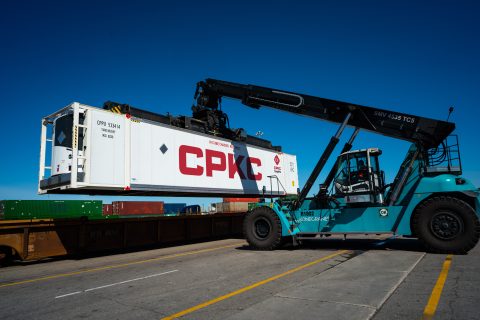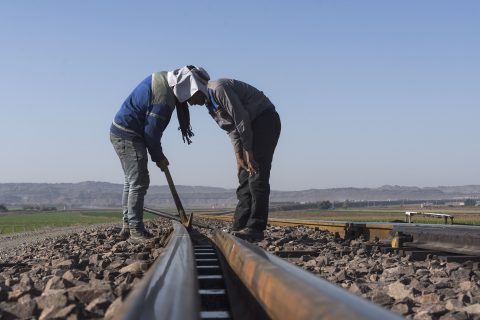EC transport leaders move to avoid a Rastatt repeat
The European Commission is laying down future contingency plans to avoid a repeat of the chaos caused to continental rail freight operations for nearly two months this summer as a result of the Rastatt landslip in Germany. Operators suffered losses running into millions of Euros after the landslip at a tunnel construction site in south west Germany in August saw the Basel-Karlsruhe stretch closed for nearly two months.
A meeting of experts organised by the Commission’s Directorate General for Mobility and Transport (DG Move), and chaired by Deput Director General Matthew Baldwin has agreed on a way forward to create a dedicated group of the Platform of Rail Infrastructure Managers (PRIME) and the Railway Undertakings’ Dialogue. Starting early next year, its sole remit will be to develop a best practice template for contingency plans.
Timely information
This should include procedures to facilitate coordination between infrastructure managers and timely information of railway undertakings. The group will also include experts of Europe’s dedicated Rail Freight Corridors, intermodal operators and the European Shippers’ Council.
The Commission used the meeting to argue that the vital Rhine Alpine rail freight corridor, which saw a huge number of services disrupted, is the most heavily used of all nine corridors, and the EC says it is aware that its blockage has dramatic consequences for freight traffic. It added there was a ‘real urgency’ for continued modal shift and and achieving decarbonisation objectives. DG Move is also concerned about the impact of the Rastatt blockage on the economy along the Rhine-Alpine corridor, on the modal share of the rail freight and on the viability of railway undertakings operating on that corridor.
Long-term effects
Responding to a letter voicing the concerns felt by European rail logistics representatives, Violeta Bulc, the European Union’s Transport Commissioners, said she shared their concern about the long-term effects of the disruption and strongly supported the idea to draw all the necessary lessons from the incident to be better prepared in the future.
This follows a recent meeting of the Rhine-Alpine Corridor’s Executive and Management boards to discuss the ramifications of the incident. Rail and logistics associations’ representatives sent an open letter to the European Commission calling for German authorities to clarify questions over liability. Though only the first step, it is hoped that the Commission’s latest actions will go some way to addressing concerns of operators like SBB Cargo and Hupac that plans are well advanced for ensuring such a scenario will not be repeated.
You just read one of our premium articles free of charge
Want full access? Take advantage of our exclusive offer





